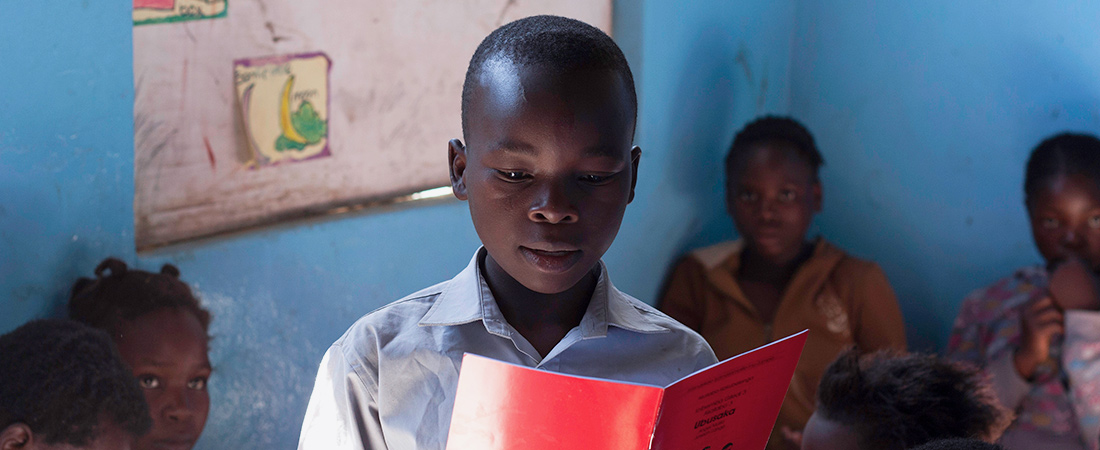
Literacy and mathematical programs deliver the promise of education to millions of children around the world.
We create and test learning experiences that lead to deep understanding and an ability to act thoughtfully upon the world. Whether in settings that are rich or poor in resources, we are committed to building sound foundations in literacy, science, and mathematics.
Through engaging classroom curricula, media instruction, digital tools, and teacher training, we equip children and young adults with the fundamentals they need to be successful—in school and in life.
Related Content
A Second Chance at School in Mali
In Mali, accelerated education is helping thousands of children get back to school.
Is Social Media Harmful to Students with Disabilities?
A new report on social media finds some benefits, but higher cyberbullying rates.
3 Ways to Stop the Summer Slide
Want to help kids keep learning this summer? Here are some tips for parents and caregivers.
How Schools Can Support Students Affected by Opioids
The trauma children experience as a result of opioid misuse at home can affect how they do in school—but schools can help.
3 Ways Schools Can Support Children Affected by the Opioid Crisis
Schools are uniquely positioned to address the needs of children exposed to trauma, says Shai Fuxman.
Accelerating Education in Liberia
An estimated 300,000 Liberian children do not attend school. What’s being done to provide more access to education?
Projects
Resources
Here are a few of our resources on behavioral, physical, and mental health. To see more, visit our Resources section.
Based on extensive research and collaboration with teachers, coaches, and schools, this book guides middle school mathematics teachers in building on multilingual learners’ strengths to ensure they thrive in mathematics class.
These teachers’ guides supplement the Living: Skills for Life, Botswana’s Window of Hope curricula.
This is the executive summary of a report that describes the proceedings from the first State-Federal STEM Summit, held June 2018 in Washington, D.C.
This document provides links to free fraction apps that were designed by EDC. These dynamic, easy-to-use apps offer opportunities for students to explore fraction concepts, use virtual manipulatives to represent and solve problems, and build estimation strategies.
This collection of essays shares insights and strategies from EDC’s work to support teachers’ professional learning, as well as links to an array of EDC’s resources for teachers.
Inspiring Climate Action Now (ICAN) demonstrates the power of investment in science as a foundational skill set in low-resource contexts. In transforming primary science instruction, ICAN addresses gaps that limit later STEM opportunities for marginalized learners and motivates local action to respond to climate change. This brief introduces the ICAN initiative in Mali, Zambia, and Antigua & Barbuda.
The Work-Based Learning Data Collection Toolkit is designed to guide educators and school administrators in developing or improving their systems for collecting work-based learning data.
In this report, the authors share findings and recommendations from their review of existing research, exploration of teacher professional development programs, and interviews with teachers.
The proliferation of new technologies is changing the way we live, learn, and work. This white paper examines the complex and interconnected challenges related to workforce development, economics, education, equity, and ethics that our society must address to ensure our workforce is future-ready.
Zoom In is a free, research-based online tool that helps students learn U.S. history while strengthening their literacy skills.